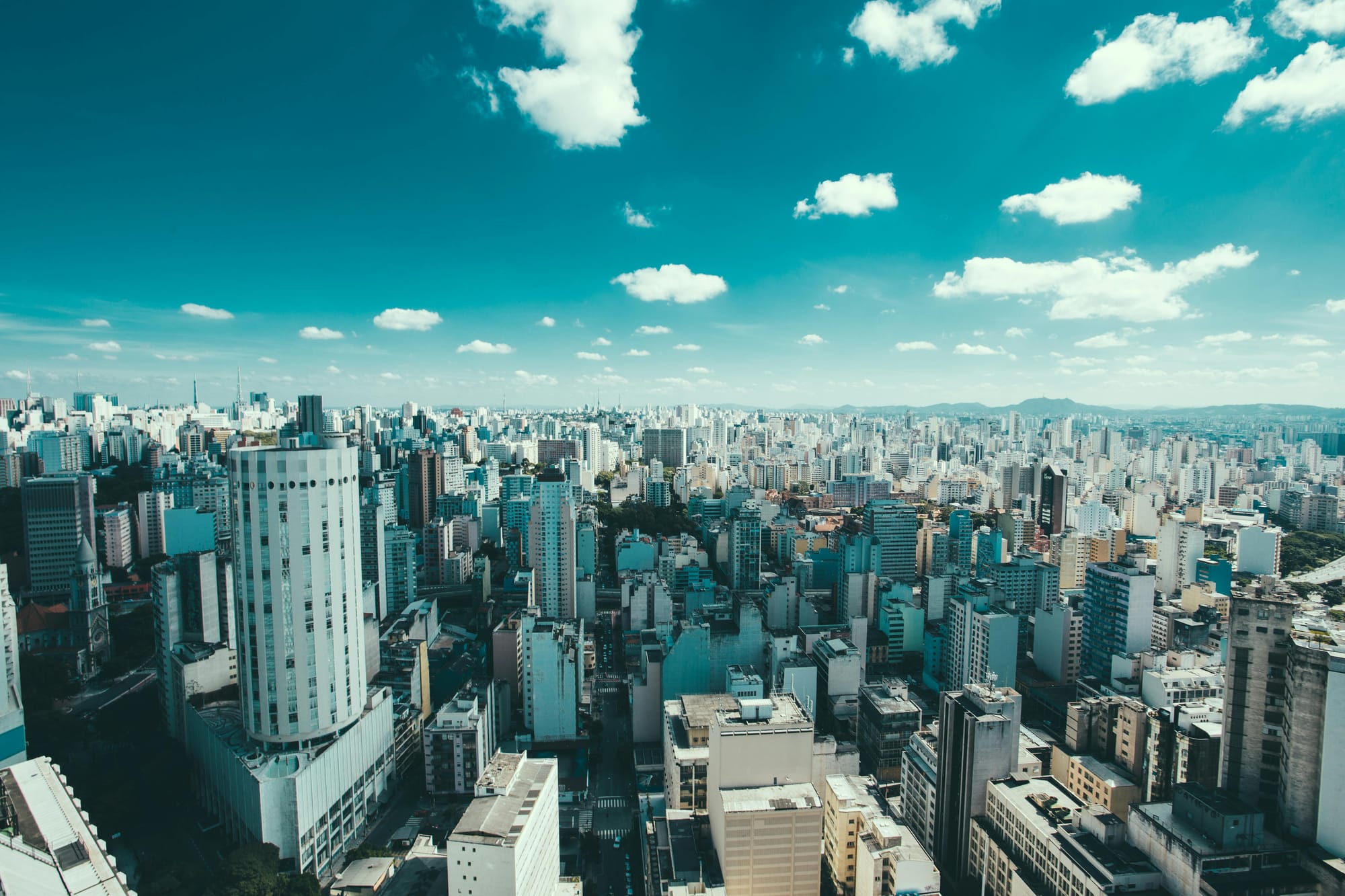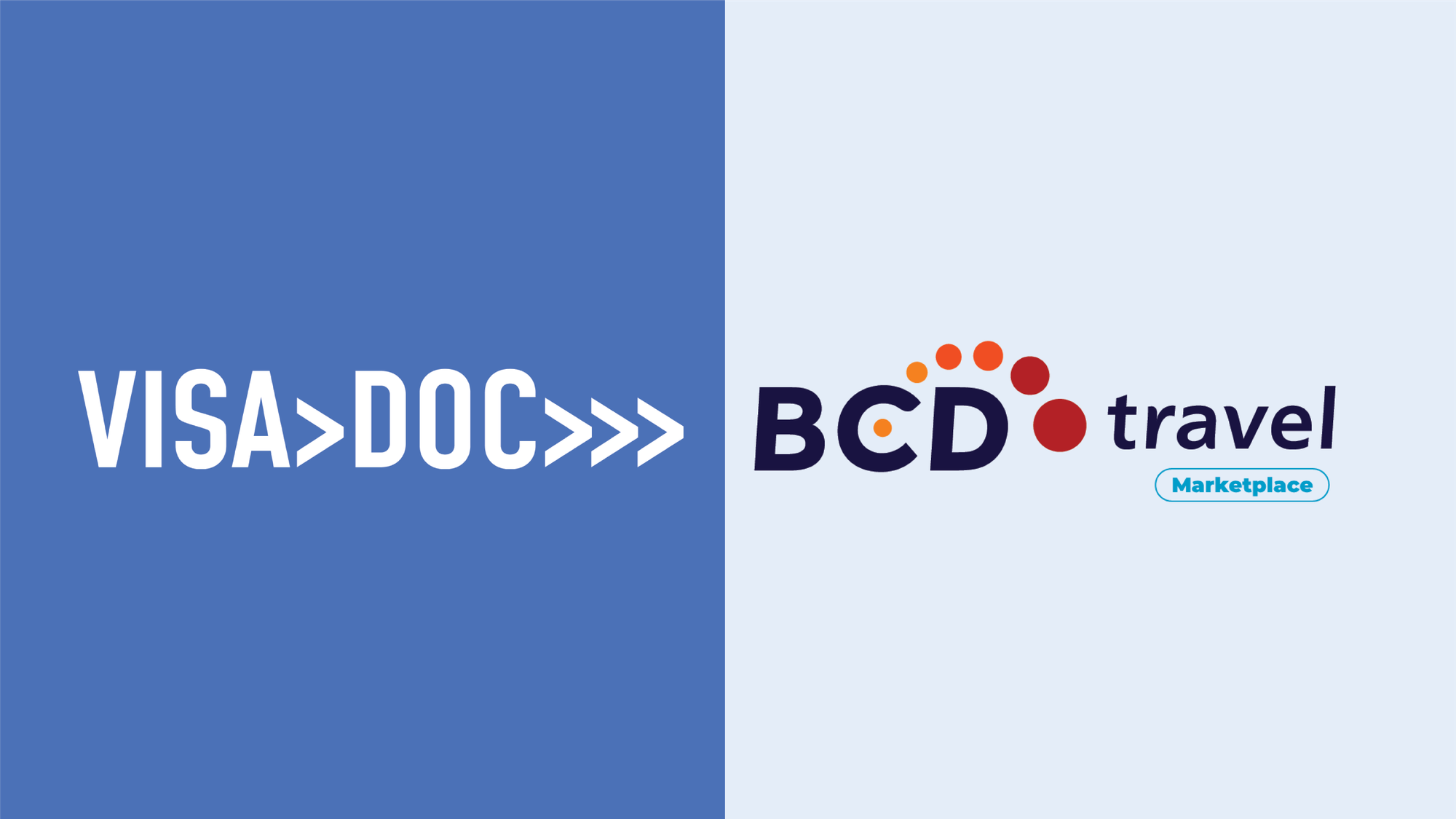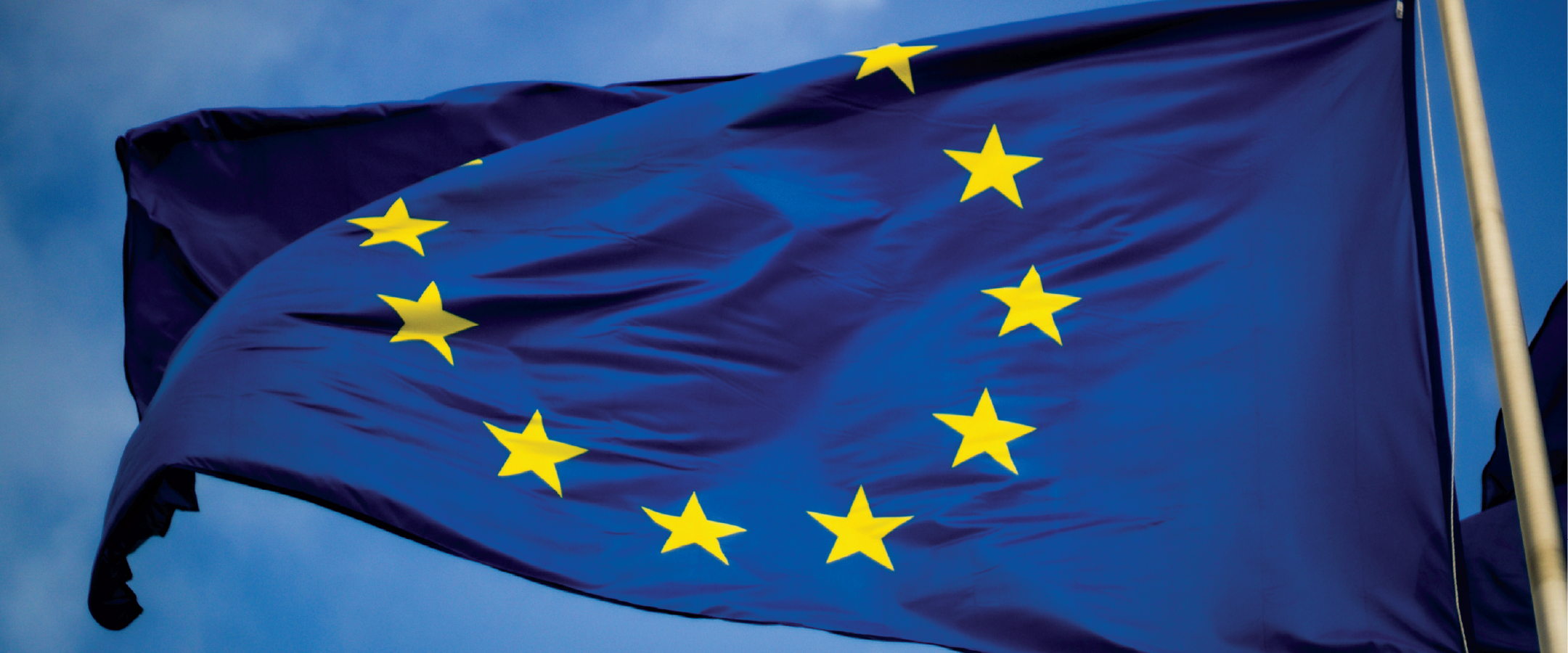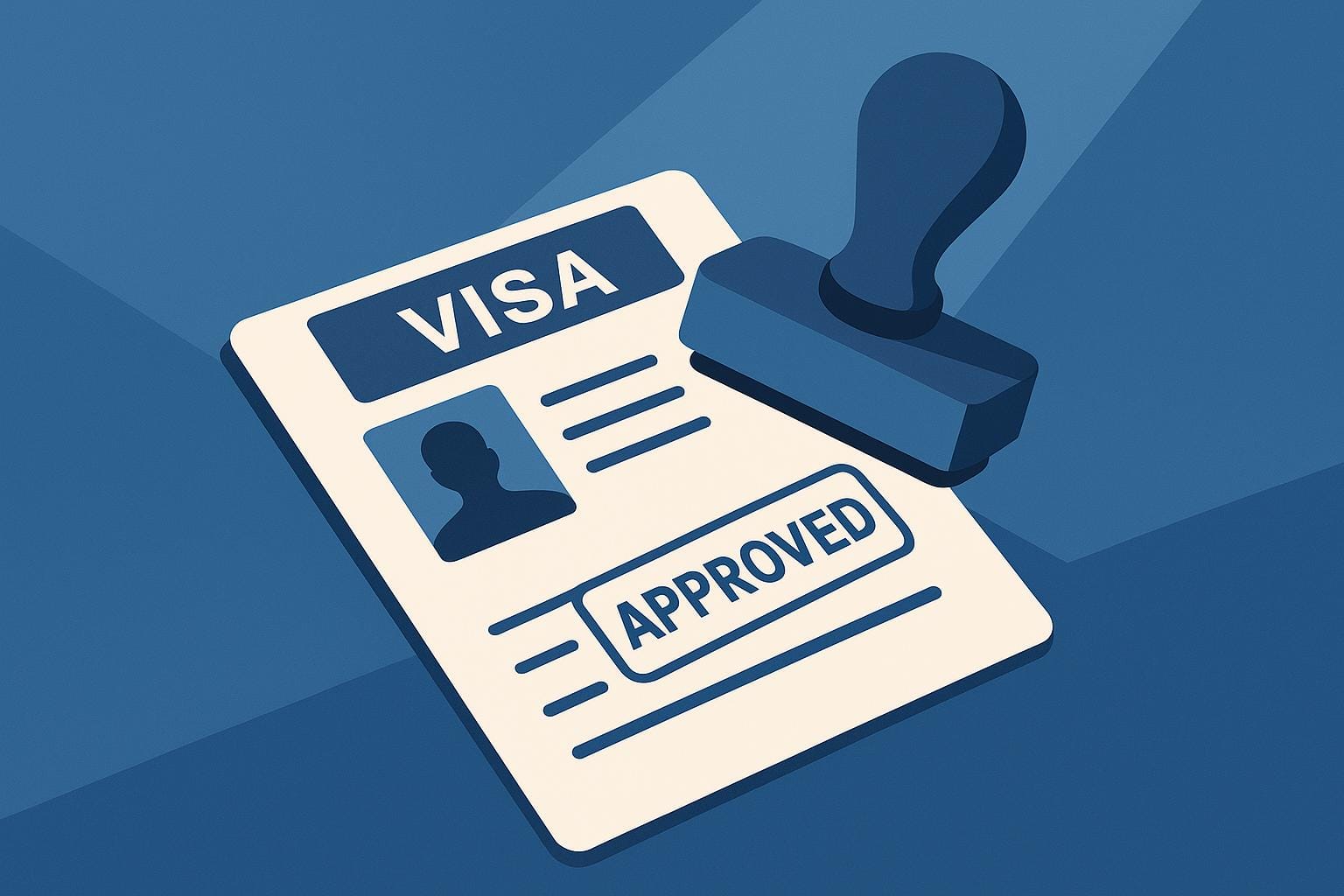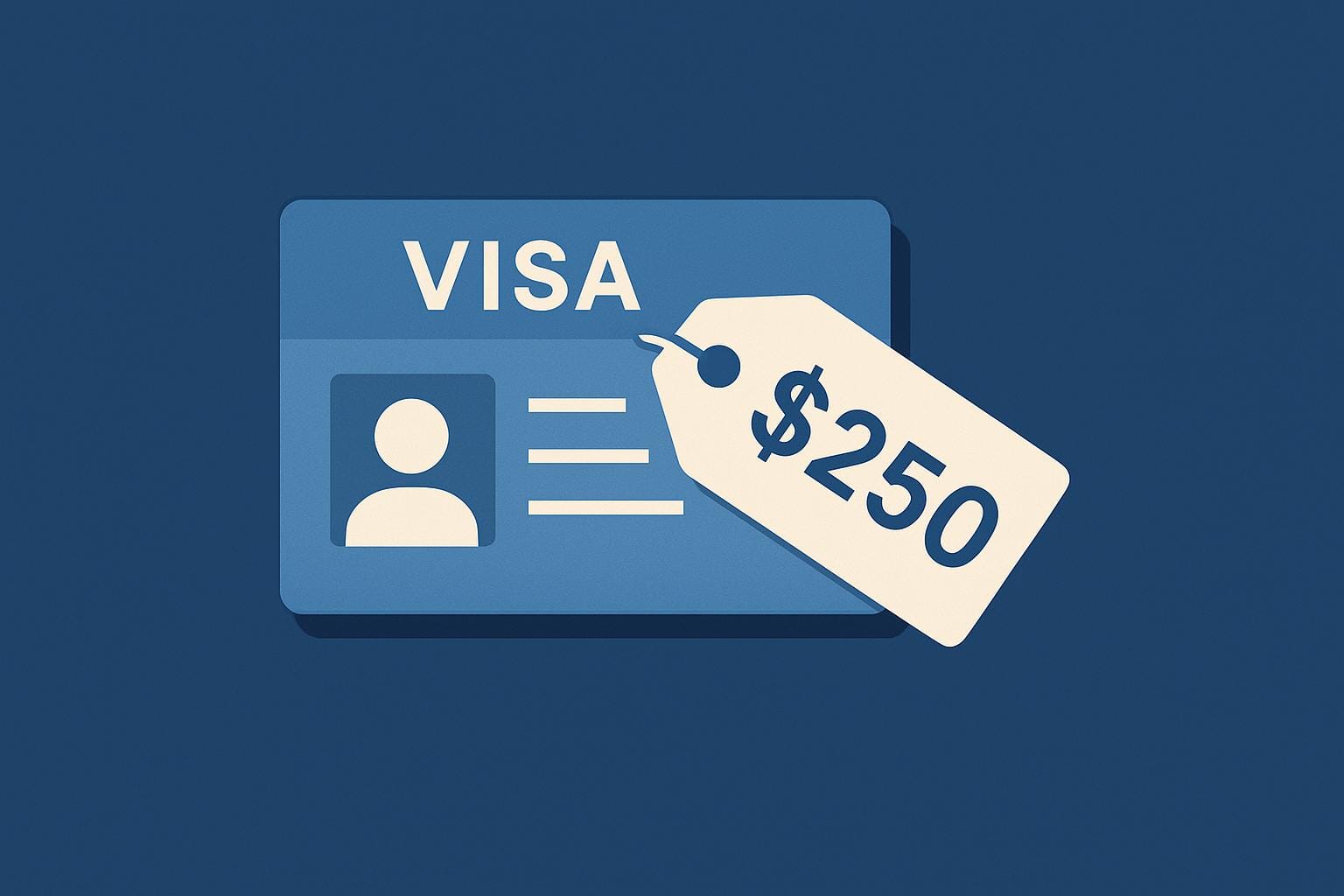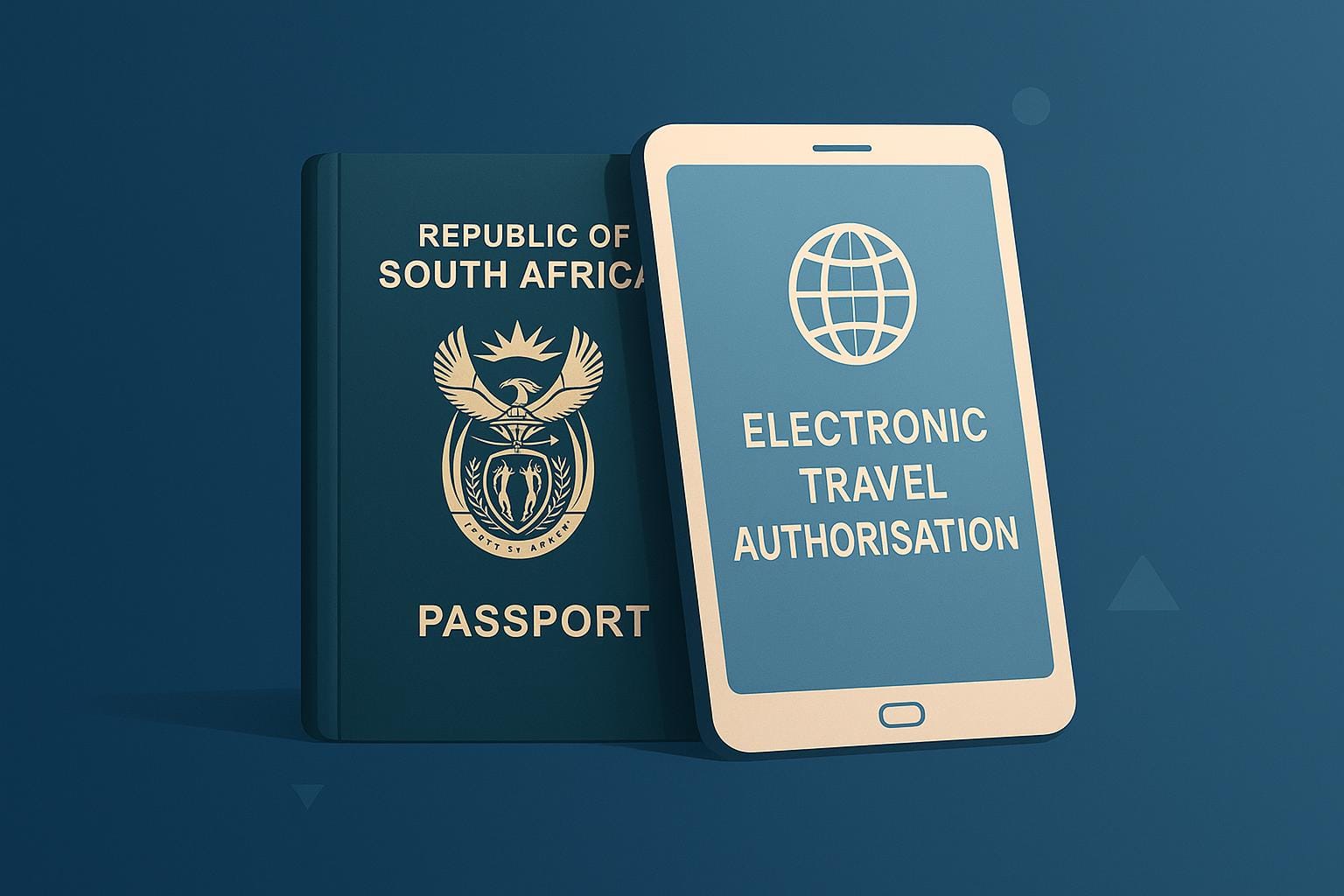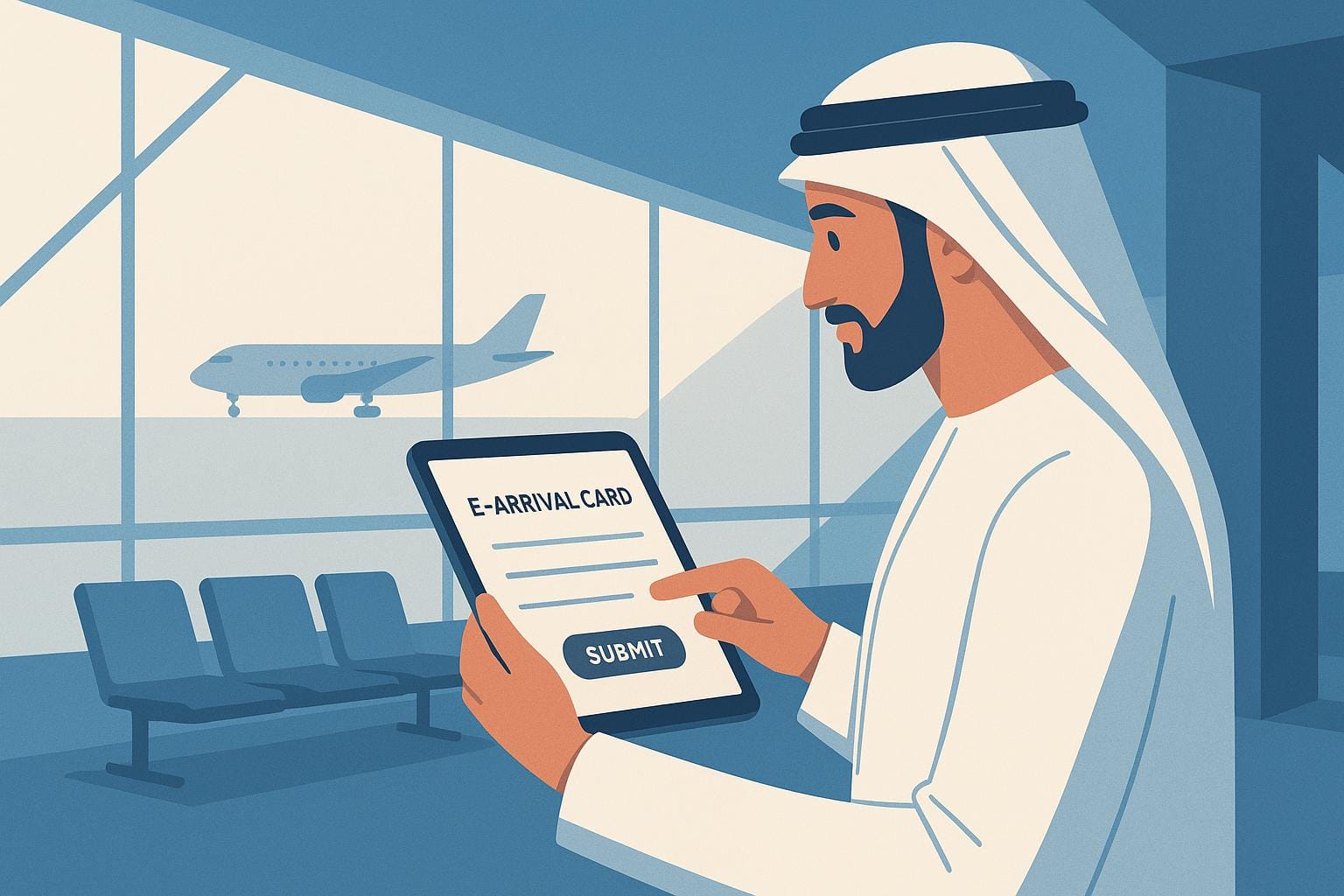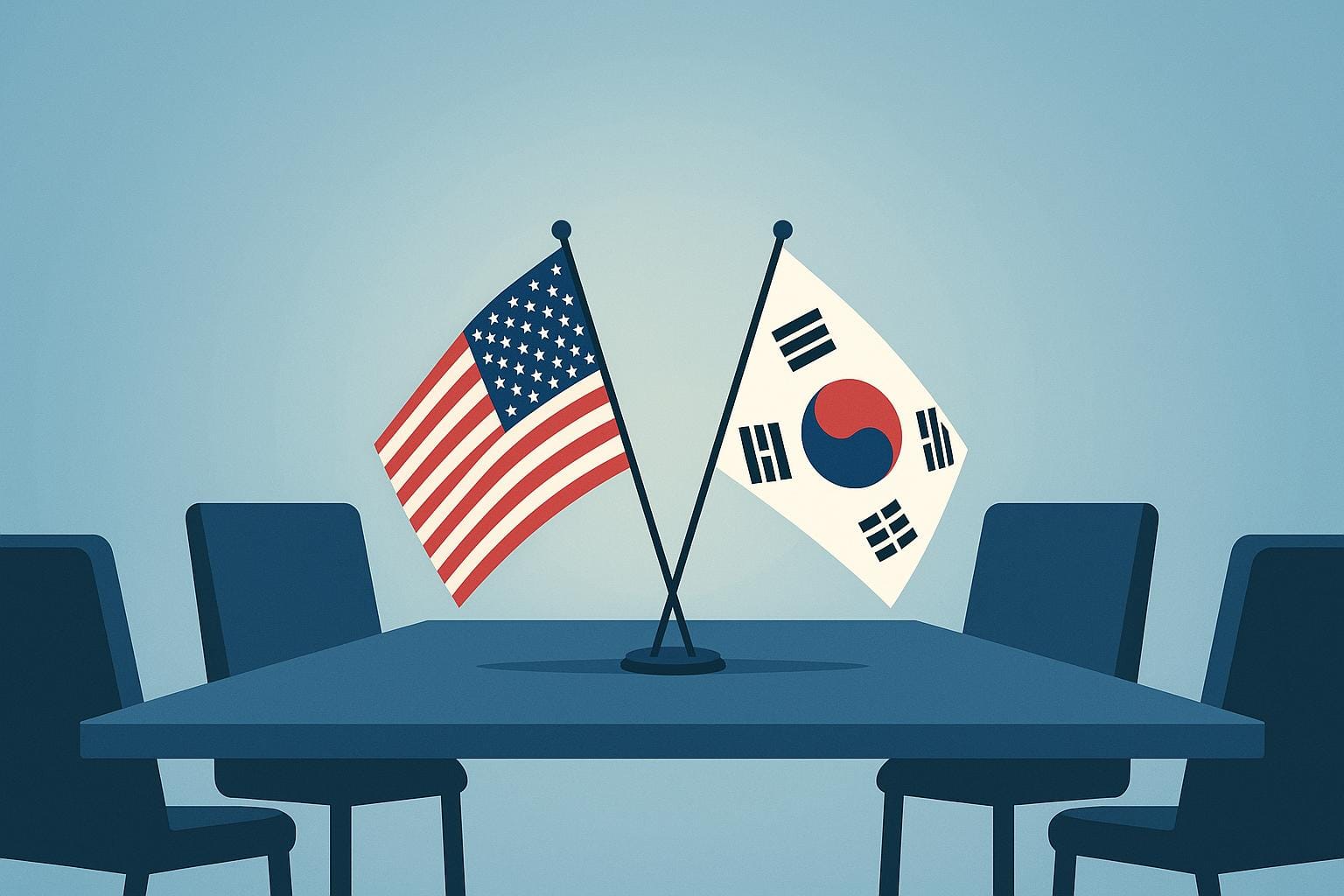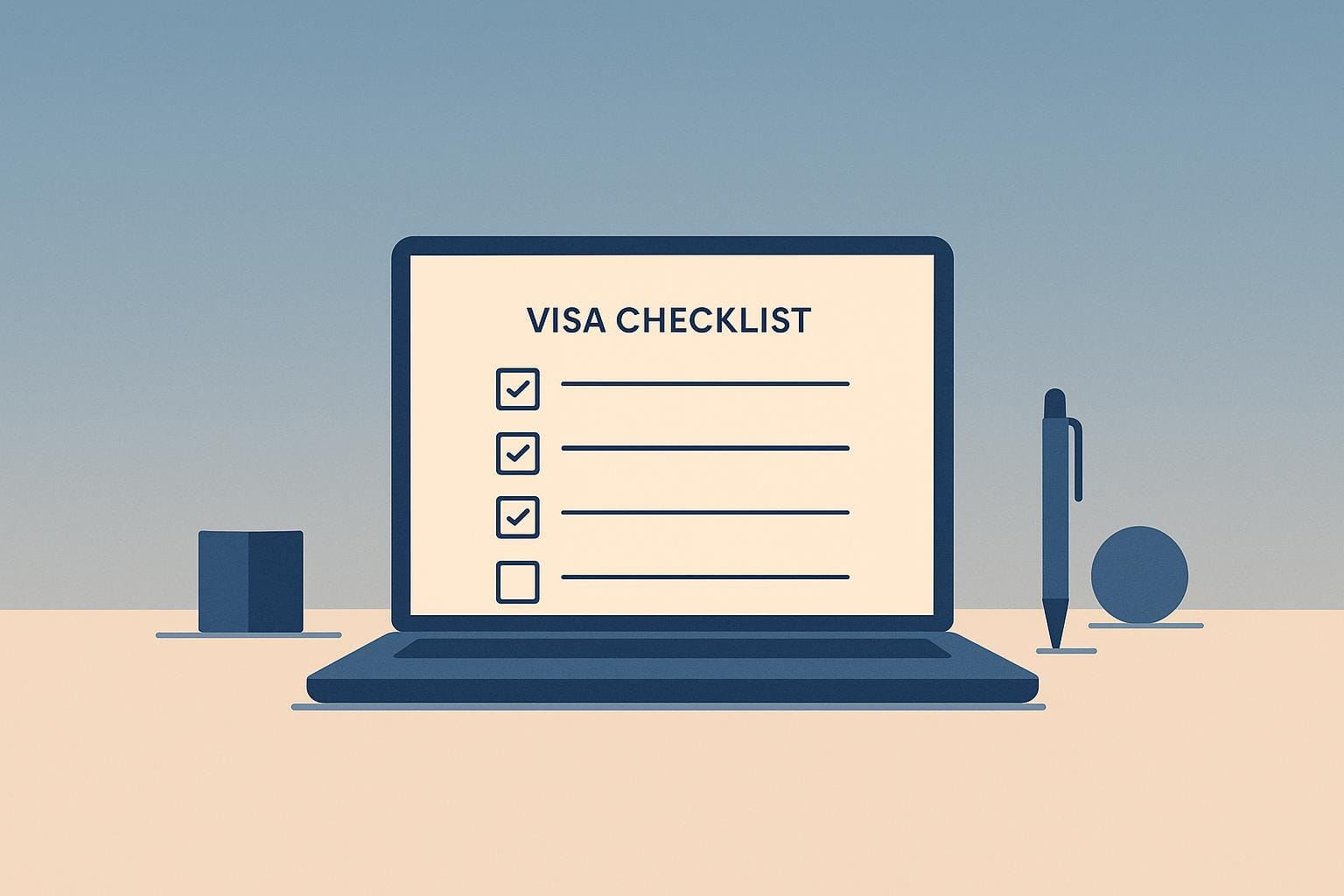Planning a short-term corporate training trip to Brazil? Here's what you need to know:
From 10 April 2025, U.S. citizens will need a visa to enter Brazil. For corporate trainers, the two main visa options are:
- VITEM II (Standard Business Visa): For non-technical activities like meetings, seminars, or presentations. Max duration: 90 days. No technical training allowed.
- VITEM V (Technical Training Visa): For hands-on technical or professional training. Requires detailed documentation and approval. Max duration: 90 days for technical training or up to 1 year for professional development.
Key Points:
- Trainers cannot be paid directly by Brazilian companies under either visa.
- Misclassifying your visa can lead to legal issues.
- Proper documentation, including training plans and proof of skills, is essential.
Quick Comparison:
| Criteria | VITEM II | VITEM V |
|---|---|---|
| Purpose | Business meetings, seminars | Technical/professional training |
| Max Duration | 90 days | 90 days (technical) / 1 year (professional) |
| Direct Payment Allowed | No | No |
| Documentation Required | Basic | Detailed training plans, proof of expertise |
Ensure compliance with Brazilian regulations by consulting immigration experts, organising documents systematically, and starting visa applications early. Proper planning avoids delays and ensures a smooth training experience.
Business Visa Basics for Training Activities
In Brazil, short-term corporate training assignments are carefully regulated under the law. The Brazilian Ministry of Labour and Employment ensures that all training activities comply with these regulations.
Training Activities Under Brazilian Law
Short-term training assignments in Brazil fall into a few specific categories, each with its own rules:
| Activity Type | Maximum Duration | Visa Category | Key Requirements |
|---|---|---|---|
| Academic/Study Training | Up to 90 days | VIVIS (Visitor) | Must involve supervised academic training |
| Technical Training | Up to 90 days | VITEM V | Requires a detailed plan focused on equipment use |
| Professional Development | Up to 1 year | VITEM V | Must occur within the same economic group |
Under Normative Resolution 35/2018, technical training is strictly defined. It must centre on operating and maintaining machinery or equipment made in Brazil. The Brazilian host company is required to submit a thorough training plan, detailing the materials and methods to be used. This distinction is crucial for understanding how training differs from employment, as outlined below.
Training vs Employment Guidelines
When conducting training in Brazil, it's essential to ensure that the activities remain within the scope of training and do not cross into employment. Here are the key points to keep in mind:
- Payment Rules: Trainers cannot be directly paid by Brazilian companies while on a business visa. All expenses should be properly documented instead.
- Skills Transfer Requirement: For technical training visas, businesses must prove that the trainer’s skills are not readily available in the Brazilian labour market.
- Time and Scope: Training activities must strictly follow the time limits and scope outlined by the applicable visa category.
It’s important to note that hands-on technical services, installations, or extended assignments would require a work visa instead of a business visa.
Main Business Visa Options
Brazil offers several business visa categories tailored to different professional activities, especially when it comes to corporate training. Understanding the distinctions between these visas is essential for compliance and smooth operations.
VITEM II: Standard Business Visa
The VITEM II visa is designed for short-term business activities that do not involve providing services or conducting technical training. It’s ideal for professionals engaging in activities such as:
- Attending meetings or delivering presentations
- Participating in corporate events and training seminars
- Sharing knowledge in discussion sessions
- Negotiating contracts
However, VITEM II holders are limited to expense reimbursements and cannot receive direct payment from Brazilian entities.
| Activity Type | Allowed Under VITEM II | Duration Limit |
|---|---|---|
| Business Meetings | Yes | 90 days |
| Contract Negotiations | Yes | 90 days |
| Corporate Events | Yes | 90 days |
| Technical Training | No | N/A |
| Paid Services | No | N/A |
For technical training or service-related activities, the VITEM V visa is the appropriate option.
VITEM V: Technical Training Visa
The VITEM V visa is intended for those involved in hands-on technical training, extended programmes, or specialised instruction linked to service agreements with Brazilian entities. This visa often requires prior approval from the Ministry of Justice.
To qualify, applicants typically need to meet one of the following criteria:
- Two years of professional experience combined with nine years of formal education
- A university degree plus one year of relevant experience
- A postgraduate degree
The VITEM V visa allows for stays of up to 90 days without contractual obligations or up to two years with the required documentation.
Choosing the Right Visa
When planning corporate training in Brazil, organisations must carefully evaluate the scope and duration of the training to determine the appropriate visa. Consulting with an immigration expert is highly recommended to navigate the specific requirements and ensure compliance with Brazilian regulations. This ensures a smooth process and avoids potential legal complications.
Required Documents and Application Steps
Applying for the right visa to conduct corporate training in Brazil involves gathering specific documents and following a structured process. Below are the key requirements and steps for the VITEM II and VITEM V visas.
VITEM II Document Checklist
The VITEM II visa is tailored for short-term, non-technical training assignments. To apply, you'll need the following:
| Core Documents | Supporting Documents |
|---|---|
| Completed Visa Application Form (RER) | Original corporate invitation letter on company letterhead. It must include: the purpose of the training, a detailed itinerary with exact dates, contacts in Brazil, and confirmation that the company will cover all financial responsibilities. |
| Valid passport (with at least 6 months validity) | Proof of financial means (e.g., bank or credit card statements) |
| Photocopy of a return ticket | Proof of residence |
The invitation letter is a critical document. It must clearly outline the training's purpose, specific dates, and contact details, while also confirming the company's commitment to covering all expenses.
VITEM V Document Requirements
For technical training that demands a VITEM V visa, the process is more detailed and requires additional documentation:
-
Initial Documentation
- A written justification for hiring a foreign trainer.
- Evidence showing the trainer's expertise is not available locally.
- A comprehensive outline of the training programme.
- An employment contract or service agreement.
-
Professional Credentials
Applicants must meet one of the following criteria:- Two years of professional experience and nine years of formal education.
- A university degree with at least one year of relevant experience.
- A postgraduate degree in the relevant field.
-
Additional Requirements
All documents must be translated into Portuguese by a certified translator and authenticated by the Brazilian consulate. A consular fee of €120.00 applies.
Important Notes for Both Visa Types
- Always keep copies of all submitted documents and any tracking numbers for mailed applications.
- The Brazilian Federal Police will determine the maximum stay duration upon arrival.
- Consular authorities may request additional documentation during the process.
Regulatory Compliance Guidelines
After navigating visa documentation and application steps, it's crucial to address regulatory requirements to ensure smooth training operations in Brazil. Staying informed about and complying with Brazilian regulations helps avoid potential legal complications.
Allowed Activities by Visa Type
Below is a breakdown of permitted activities for each visa type:
| Activity Type | VITEM II (Business Visa) | VITEM V (Work Visa) |
|---|---|---|
| Business meetings | ✓ Permitted | ✓ Permitted |
| Commercial contacts | ✓ Permitted | ✓ Permitted |
| Investment evaluation | ✓ Permitted | ✓ Permitted |
| Technical training delivery | ✗ Not permitted | ✓ Permitted |
| Professional training | ✗ Not permitted | ✓ Permitted |
| Technical assistance | ✗ Not permitted | ✓ Permitted |
Note: Professional training or technical assistance under a VITEM II visa is strictly prohibited and may result in immigration penalties.
Tax Requirements for Trainers
Tax obligations for corporate trainers in Brazil vary based on their residency status and the length of their stay.
Non-resident Trainers:
- A flat 25% tax applies to income earned within Brazil.
- Income sourced outside Brazil is exempt from Brazilian taxation.
- Filing annual tax returns for foreign income is generally not required.
Tax Residents:
- Income is taxed progressively, ranging from 0% to 27.5%.
- Worldwide income must be reported.
- Annual tax returns are mandatory.
Example in Practice: Emma, a corporate trainer from the UK, spent 150 days in São Paulo delivering technical training. As a non-resident, she paid Brazilian taxes only on income earned from her activities in Brazil. Her earnings in the UK remained exempt. This case highlights the importance of selecting the correct visa to align with tax responsibilities.
Key Compliance Considerations:
- Keep accurate and detailed income records.
- Ensure proper tax withholding is in place.
- Review the impact of double taxation treaties.
- Report foreign assets if they exceed specified thresholds.
Next, focus on simplifying training visa applications with efficient document management and updated HR procedures.
Managing Regular Training Visa Applications
For organisations that regularly send trainers to Brazil, having a reliable system for managing visa applications is essential to avoid compliance issues and unnecessary delays. One way to achieve this is by implementing an efficient document management system.
Document Management System
Using a digital document management system can help simplify the visa application process for training programmes.
Digital Document Repository
- Create separate folders for each trainer to keep their documentation organised.
- Store scanned copies of frequently needed documents for quick access.
- Use version control to manage updates to certificates and qualifications.
- Ensure secure access for HR teams and authorised personnel.
Document Tracking Matrix
A document tracking matrix can help you keep tabs on key documents and their validity:
| Document Type | Validity Period | Responsible Team |
|---|---|---|
| Passport | 10 years | Individual trainer |
| Professional qualifications | Varies | HR department |
| Company registration | Annual | Legal team |
| Training contracts | Per assignment | Project manager |
Compliance Monitoring
- Set up automated alerts to flag upcoming document expiration dates.
- Track visa processing timelines to avoid delays.
- Monitor trainer quotas to maintain compliance with the rule requiring two-thirds of employees to be Brazilian and one-third foreign.
- Keep templates of previously approved applications to standardise submissions.
HR Policy Updates for Visa Changes
A well-maintained document system should be complemented by clear and up-to-date HR policies that align with Brazilian immigration regulations.
Application Timeline Management
- Start visa applications at least 8 weeks before the training is scheduled to begin.
- Schedule CRNM (Carteira de Registro Nacional Migratório) registrations within 90 days of the trainer’s arrival in Brazil.
- Account for potential delays during peak periods.
Internal Compliance Guidelines
- Clearly assign roles and responsibilities for each step of the visa process.
- Provide ongoing training for HR staff to ensure they are familiar with the latest visa regulations.
- Standardise procedures for collecting necessary documents.
- Develop emergency protocols for last-minute training needs.
Process Optimisation
- Regularly evaluate the success rate of visa applications and identify areas for improvement.
- Use standardised templates to simplify applications and document common challenges along with their solutions.
- Integrate the visa application process with existing HR systems for smoother data management.
Incorporating automated document verification and personalised notifications can further reduce errors and speed up processing times, making the entire system more efficient.
Conclusion
To successfully implement corporate training programmes in Brazil, it's essential to adhere to the regulatory and documentation requirements discussed earlier. Here are the key factors that can make a significant difference:
Visa Selection and Compliance
Choosing the right visa is crucial and should align with the purpose of the training. As the Ministério das Relações Exteriores explains:
"The type of visa will be determined according to the purpose of your trip".
Effective Documentation Management
Managing documentation efficiently is just as important. Using a digital system with standardised procedures can simplify the process. Automated tracking tools can help monitor visa processing timelines and flag upcoming document expiration dates, keeping everything on track.
Expert Legal Support
As highlighted by Oliveira Lawyers, having access to professional legal advice can make navigating Brazil's regulatory environment much smoother. This can help prevent unnecessary delays and ensure compliance.
It's also worth considering the financial aspect of visa management. For example, using an Employer of Record (EOR) service can cost between £235 and £470 per employee each month, which typically equates to 10% to 20% of the employee's monthly salary. While this is an investment, it can enhance compliance and improve overall efficiency in visa processing.
FAQs
What is the difference between the VITEM II and VITEM V visas for corporate trainers travelling to Brazil?
The VITEM II visa is designed for corporate trainers involved in short-term business activities in Brazil, such as conducting training sessions or participating in meetings. It allows stays of up to 90 days per visit, making it a good choice for temporary assignments that don’t involve formal employment within Brazil.
On the other hand, the VITEM V visa caters to foreign professionals who have a formal employment contract with a Brazilian company. This visa supports longer stays and includes work authorisation but requires a specific job offer and sponsorship from the Brazilian employer.
For most corporate trainers, the VITEM II visa is typically the more convenient choice, unless there’s a need for a long-term employment arrangement in Brazil.
What documents are needed for a VITEM V visa for short-term training in Brazil, and how can corporate trainers stay compliant?
To apply for a VITEM V visa for short-term technical training in Brazil, you'll need to gather the following documents:
- A fully completed visa application form.
- A valid passport with at least two blank pages.
- Recent passport-sized photos.
- Proof of employment or a service agreement with a Brazilian organisation.
- Evidence of your qualifications, such as diplomas or certifications.
- A criminal background check (police clearance).
- Proof of financial means, like bank statements.
- A birth certificate with an apostille.
Once in Brazil, trainers are required to register with the Brazilian immigration authorities (Polícia Federal) within 90 days of their arrival. It's also crucial to keep all your documents up to date and in order during your stay. By following these guidelines, you can ensure a smooth and legally compliant experience while conducting training in Brazil.
What are the tax differences between non-resident trainers and tax residents when delivering training in Brazil?
Non-resident trainers working in Brazil generally face a 25% withholding tax on any income they earn within the country. On the other hand, tax residents are taxed on their global income using progressive rates that range from 0% to 27.5%, depending on their total earnings.
Tax residents may also access deductions and credits that are not available to non-residents. For non-residents, there might be opportunities for exemptions if their income is below certain thresholds or if relevant tax treaties apply. Understanding the specific rules is crucial to staying compliant and avoiding unforeseen tax obligations.
Related Blog Posts
- Supporting Your Employees Through the Visa Process: A Travel Manager’s Guide
- India Business Travel Guide: Visas, Permits, and Cultural Tips for Success
- Business Visa Processing Times: Country-by-Country Guide
- Presenting at Tech Conferences in Germany: Short-Term Business Visa Requirements for Corporate Speakers



